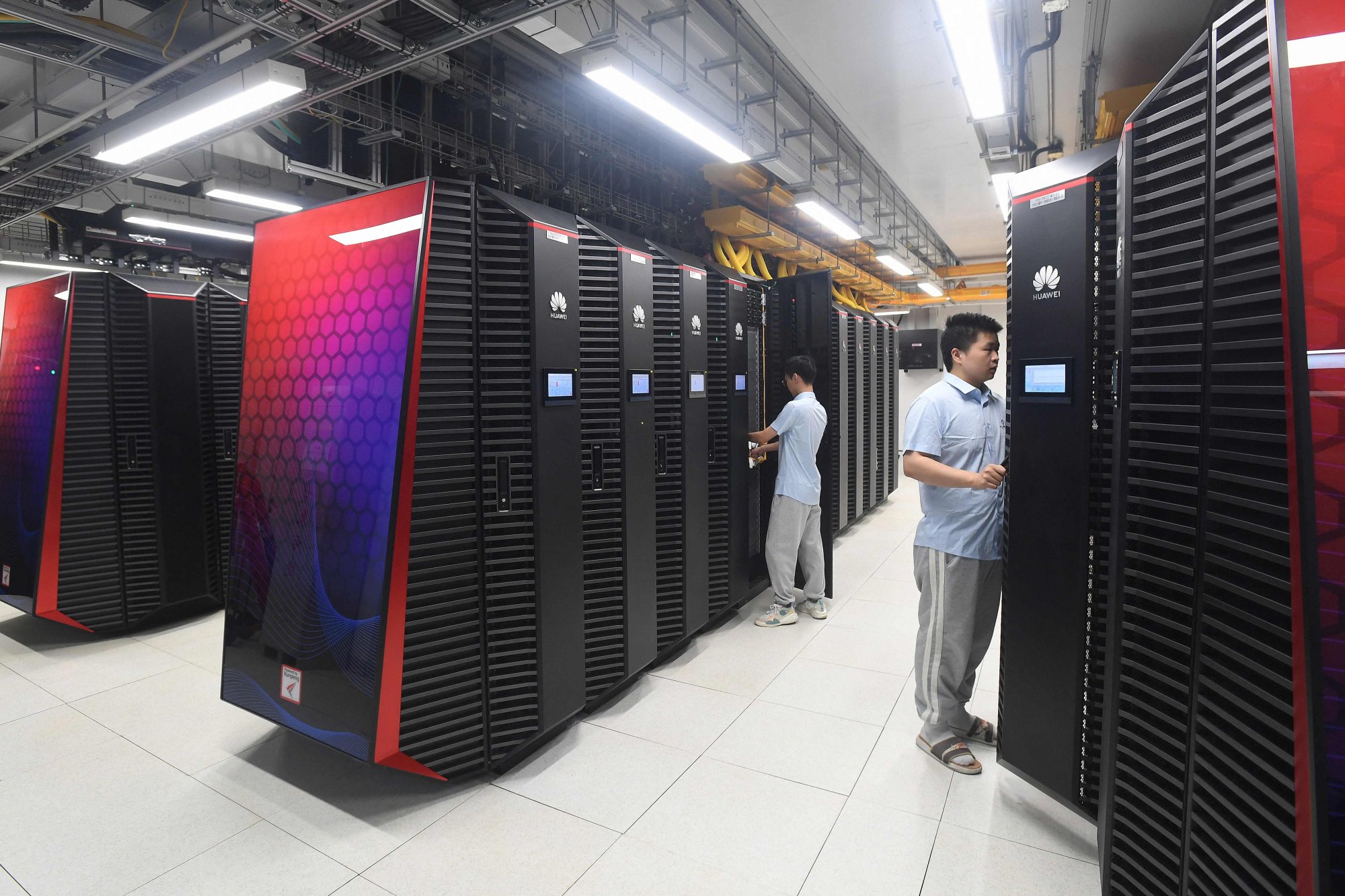Supercomputing technology that China has developed over the past two decades could help break the stranglehold of US restrictions on the mainland’s AI industry. — SCMP
China must find an alternative approach to artificial intelligence (AI) development, in lieu of stacking up processors inside data centres, as US sanctions continue to bar the country’s access to advanced semiconductors and chip-making equipment, according to industry experts on the mainland.
Leveraging supercomputing technology that China has developed over the past decade could help break the stranglehold of US-led restrictions on the mainland’s AI industry, according to Zhang Yunquan, a researcher at the Institute of Computing Technology under the Chinese Academy of Sciences (CAS), who was quoted in a report on Monday by state-backed tabloid Global Times.
Supercomputing systems designed for training large language models (LLMs) – the technology underpinning generative AI services like ChatGPT – are crucial to replacing power-hungry, data-centre computing clusters, which typically employ from 10,000 to 100,000 graphics processing units (GPUs) for such training, Zhang said in a recent conference, according to the report.
China’s quest to establish a viable, advanced computing platform to train LLMs and develop AI applications shows the urgency of becoming technologically self-sufficient on the mainland, as its AI progress remains hindered by limited GPU choices amid US sanctions that have prevented top GPU firm Nvidia from supplying its most cutting-edge chips to the country.

Nvidia is currently working on a version of its new flagship AI chips for the China market that would be compatible with current US export controls, according to a Reuters report last week that cited four sources familiar with the matter.
“I believe that [building] LLMs are not achieved by simply adding more chips,” CAS academician Chen Runsheng said at the same conference, according to the Global Times report. “They must learn, like the human brain, to lower energy consumption, while improving their efficiency.”
China – the biggest data centre market in the Asia-Pacific, with 3,956 megawatts of capacity – relies heavily on coal power. The country generated nearly two-thirds of its electricity from coal last year.
Chen called on China to work on fundamental research for intelligent computing of LLMs, combined with high-performance computing (HPC) technology, to achieve breakthroughs in computing power, the report said. HPC refers to the ability to process data and perform complex calculations at high speeds, which are accomplished by supercomputers containing thousands of compute nodes that work together to complete tasks.

The batch of LLMs that have been developed on the mainland are based on models and algorithms developed by the US, without enough consideration of fundamental theories, according to Chen. “If we can make progress in fundamental theory, we will achieve groundbreaking and authentic innovation,” Chen said.
At present, Chinese companies have been building computing clusters for training LLMs that have 10,000 GPUs or more, which include home-grown chips from Chinese GPU start-up Moore Threads Technology.
Chinese Big Tech firms, such as Tencent Holdings, have been making optimisations in their infrastructure, including speeding up network communications and boosting AI training efficiency. Tencent’s Xingmai HPC network, for example, can support a single computing cluster with more than 100,000 GPUs, according to the company. – South China Morning Post





